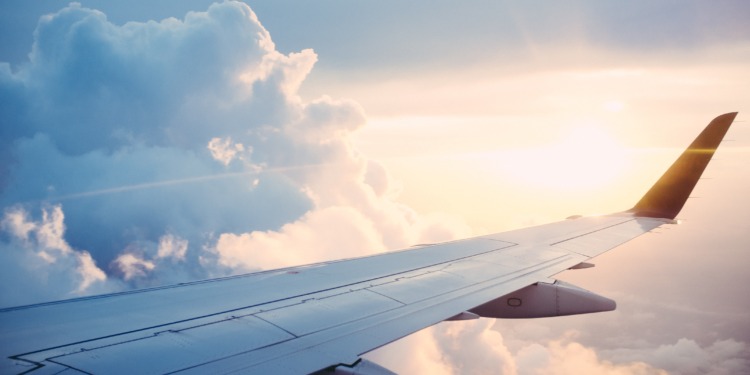Everyone is focused on “Harry & Meghan”, Netflix’s new documentary on the Sussexes that has racked up more views than any other in Netflix history, yet the couple is not just all about their exit from the Royal family. They are also actively involved in sustainability issues. One of the more notable efforts in this area is Prince Harris’ not-for-profit organisation, Travalyst that aims to support more sustainable forms of travel and tourism.
That the sustainability problems caused by international travel should have caught Meghan and Harry’s attention is perhaps not an accident: After all, ever since they got married, they traveled the world extensively. In the Netflix documentary, they cite the success of their 2018 Australia tour as a major source of jealousy within the Royal Family, and recount their emigration to Canada and, subsequently, the US. In her shared private wedding speech, Meghan tells about their time in Botswana, and how they “rack[ed] up more air miles than any couple could have.”
With travel at the core of the couple’s courtship and working life, perhaps it is fitting that Prince Harry’s not-for-profit organisation, Travalyst, would focus on travel and tourism.
Founded in 2019, Travalyst has a simple mission: to make the travel industry more sustainable. They have partnered with major industry players to bring “consistent sustainability information to the mainstream,” with CEO Sally Davey describing Travalyst as “a unified framework for reporting sustainability.”
At the moment, their major partners include Amadeus, Booking.com, Visa, Trip.com, Google, Skyscanner, and Tripadvisor. This month, the International Air Transport Association (IATA) joined with Travalyst to help travellers to calculate their carbon footprint.
Travalyst focuses on consumer power and the demand for sustainable travel, and hopes, by empowering consumers to make those decisions, to encourage the industry to respond by making more sustainable options commercially available.
“Consumers want to understand the environmental impact of their travels. Both Travalyst and IATA are continuously working to improve their methodologies by incorporating emerging knowledge of climate impacts,” IATA Director-General Willie Walsh said. “So we are working together to provide the consumer with easy access to consistent calculations of the environmental cost of their travel.”
So far, Travalyst has worked on measuring the footprint of air travel, and of accommodations, and are working to include other forms of transport. The aim is to achieve full harmonisation of data across partners: If one were to look for sustainability information on any of its partners websites, the information would be the same. For accommodation, Travalyst measures a range of factors, like waste reduction, greenhouse gas emissions, community involvement, water conservation, and sustainable sourcing.
Related Articles: Royal Green Suits the New Prince of Wales | Prince Wiliam’s Earthshot Prize: This Year’s Winners | This Is How Renewables Could Make Tourism More Sustainable | 8 Ways To Travel Sustainably in 2022
With Google hosting the aviation framework, “anybody can take it and plug it in” to their booking site, “completely free of charge”. The next step is to provide accommodation data in the same way.
Particularly in the wake of the pandemic, and the consequent halting of travel, the tourism industry has come under particular environmental scrutiny. However, travel demand continues to grow, and for many countries, tourism is a central element in the economy. It is clear that the tourism industry is not going anywhere, and so, Travalyst aims to “grow tourism responsibly.”
The Travalyst website lists Prince Harry, Duke of Sussex, as founder and patron. The foundation’s funding has, in the past, been subjected to close scrutiny as a result of public concern at the use of charitable funding.
In 2019, the Sussexes’ MWX Foundation charity (otherwise known as Sussex Royal) received an unrestricted grant of £145,00 from the Royal Foundation charity to start it up. It received a further £151,855 from the Royal Foundation to deliver Travalyst’s sustainable travel programme, which was transferred by the MWX Foundation to Travalyst.
The UK Charity Commission opened a case investigating this and found that although Travalyst is not a charity, the “transfer of funds by MWX to Travalyst was lawful,” as “Travalyst could receive charitable funds for the promotion of sustainable travel only, which is a charitable activity in law.”
However, the Commission did find that MWX’s “decisions on spending were not adequately documented.” It seems that since MWX, which originally enclosed Travalyst, closed after only one year, Travalyst itself is not a registered charity.
At the organisation’s launch in Amsterdam in 2019, Prince Harry said that the foundation was partially inspired by a young boy he met when on a work visit to the Caribbean. The seven-year-old told him, “[b]ecause of your country, my country’s coral reef is dying.”
Harry’s father, King Charles III, became known for his environmental work when he was the Prince of Wales. Although there is no reason to believe that King Charles has had any direct influence on Travalyst, it may well be that Prince Harry was inspired by his father’s environmental work.
Overall, Travalyst shows promise as a useful tool for sustainability in an increasingly globalised world, already succeeding where others, like the Global Partnership for Sustainable Tourism Criteria, have failed. Looking at data collected from air travel and accommodation, it begins to allow customers to make sustainable choices.
However, while it is encouraging that consumers are being given these tools, it does not measure the local environmental impact of a tourist, and the activities they may take part in at their destination, such as tours, eating out, or buying souvenirs. While consumer power is remarkable and persuasive, it is no substitute for legal legislation that protects communities and eco-systems in highly visited areas.
But certainly Travalyst’s objectives are commendable and it is an organisation to watch, particularly as it has placed itself at the centre of a vast network of major players in the tourism industry. It will continue to be a useful tool, as long as transparency stays at the heart of its mission.
Editor’s Note: The opinions expressed here by the authors are their own, not those of Impakter.com — In the Featured Photo: Commercial aeroplane wing against clouded sky. Featured Photo Credit: Ross Parmly/Unsplash










